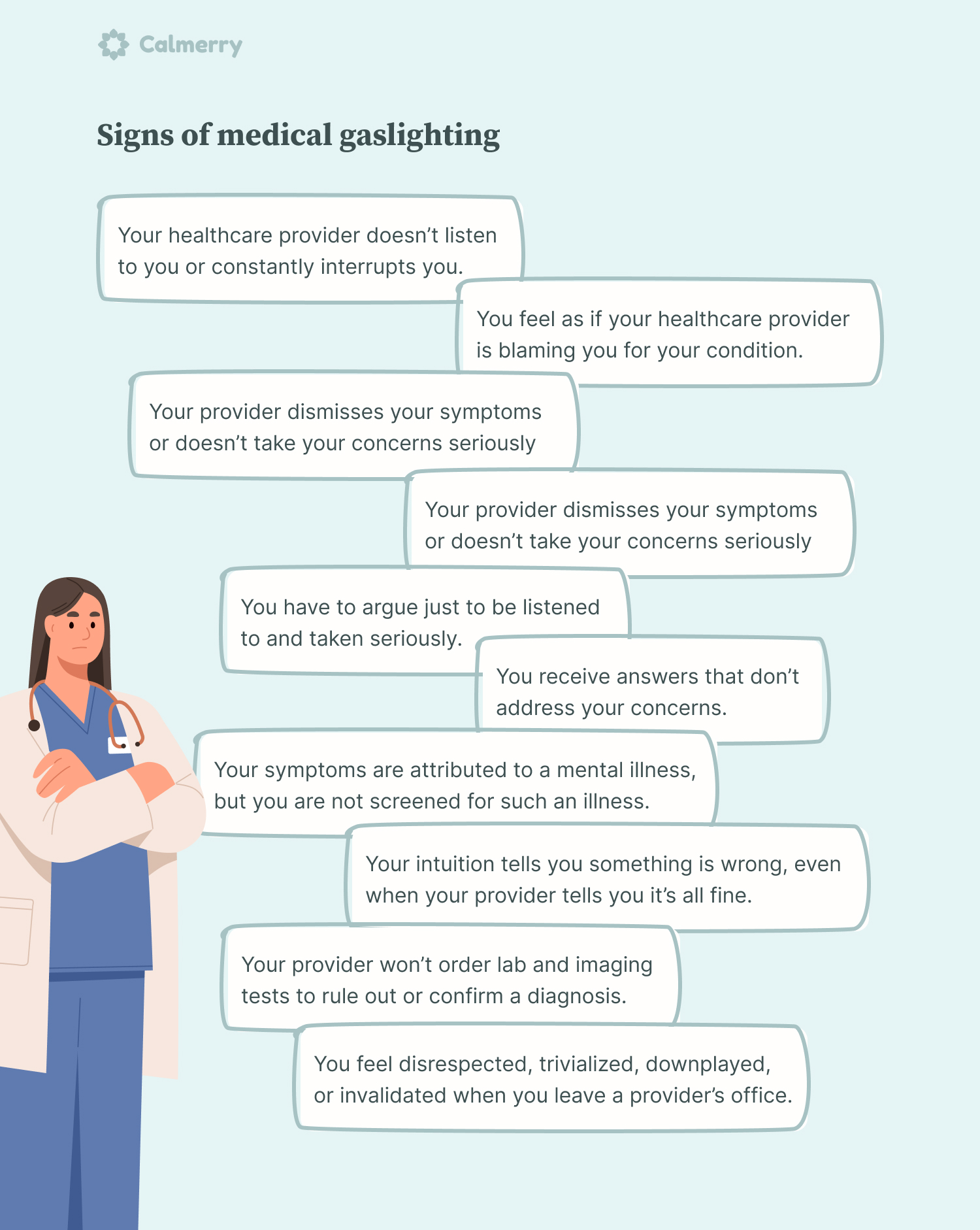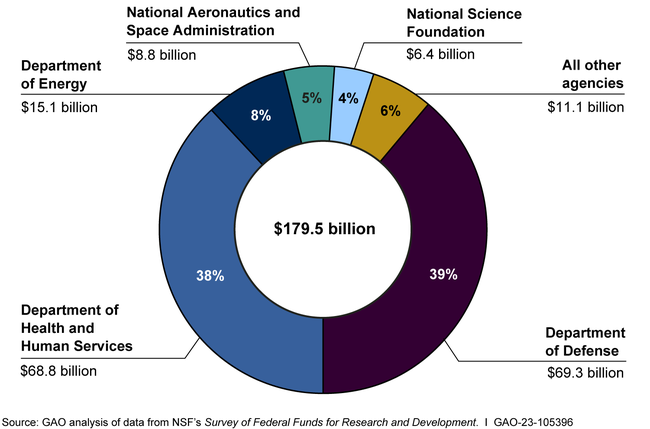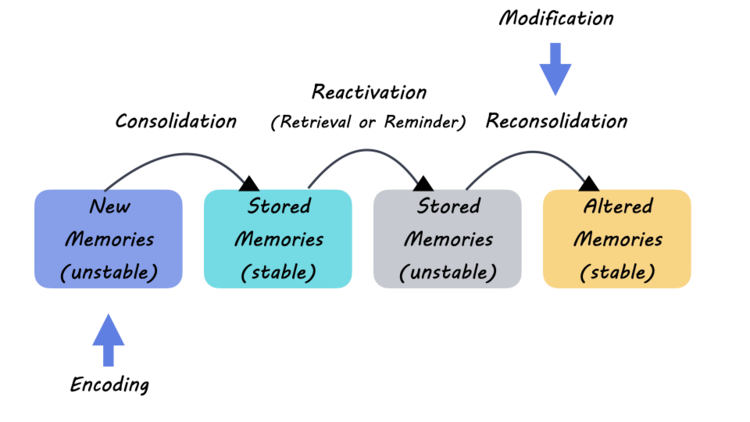Medical gaslighting is an insidious phenomenon where patients feel dismissed or doubted by healthcare providers regarding their symptoms, often leading to emotional distress and frustration. This issue is particularly pronounced among individuals with conditions like long COVID, where the lack of visible symptoms can leave patients questioning their reality as doctors struggle to provide answers. The growing discourse around medical gaslighting highlights a critical gap in patient-provider communication, exacerbated by healthcare pressures that compel doctors to prioritize efficiency over empathy. While the intent behind such dismissive behavior might not be malicious, it still constitutes a form of medical invalidation that can harm patient trust and well-being. Addressing medical gaslighting requires a concerted effort to foster a more compassionate healthcare environment, especially in a landscape plagued by doctor burnout and overwhelmed practitioners.
Often referred to as the phenomenon of medical invalidation, the experience of feeling unheard or disregarded by healthcare providers can deeply affect patients, leaving them anxious and misunderstood. This term captures the essence of how patients with complex conditions like long COVID feel when their symptoms are minimized or questioned. The stressors facing healthcare professionals today, including overwhelming caseloads and extensive documentation requirements, contribute to this disconnect, impacting effective patient-provider communication. As we navigate these complex interactions, it is essential to recognize that systemic pressures within healthcare can inadvertently lead to dismissive behaviors, which may not always stem from intentional gaslighting. Understanding this dynamic paves the way for improvements in patient care and nurturing a collaborative approach to health management.
Understanding Medical Gaslighting
Medical gaslighting refers to a phenomenon where patients feel dismissed or invalidated by healthcare professionals, particularly when experiencing symptoms that are hard to diagnose. This issue often arises when doctors, facing pressures and constraints, suggest that a patient’s suffering is psychological rather than physiological. In essence, medical gaslighting can undermine trust and erode the patient-provider relationship, leading to feelings of frustration and helplessness. Moreover, the rise of conditions like long COVID has exacerbated instances of gaslighting, as physician uncertainty about such ailments can lead to misguided conclusions.
It is crucial to differentiate between genuine intent to mislead and the systemic pressure that healthcare providers face. Many instances of medical gaslighting may not stem from a desire to deceive but rather from overwhelming healthcare pressures that force doctors to focus on productivity and efficiency. When physicians are unable to provide concrete answers due to the nature of certain conditions, they may unintentionally minimize the patient’s experience, thus contributing to feelings of invalidation.
The Impacts of Healthcare Pressures on Medical Communication
Healthcare pressures significantly affect patient-provider communication, which is essential for effective diagnosis and treatment. When doctors are pressed for time, as is increasingly common in busy clinical settings, they may not fully engage with their patients during visits. This lack of communication can lead to misunderstandings, where patients perceive their providers as dismissive or uncaring. Moreover, documentation burdens can take time away from patient interactions, further compounding the issue. With physicians dedicating up to 50% of their days to administrative tasks, the precious moments they could spend building rapport with patients are significantly diminished.
To combat this, healthcare systems must recognize the importance of fostering a supportive environment that values thorough patient interactions as much as productivity metrics. By advocating for changes in policies that prioritize patient care over sheer volume, we can get closer to eliminating the risks of medical invalidation. Providers should be encouraged to take the time necessary to listen to patients, even if it means seeing fewer patients in one day. Ultimately, effective communication can result in better health outcomes and a more satisfied patient population.
Reframing Medical Gaslighting as Medical Invalidation
The term ‘medical gaslighting’ has gained traction in social media and among patients, but many experts argue for a reframing of this issue as ‘medical invalidation.’ This shift in terminology highlights that the underlying problems often stem from systemic pressures rather than intentional deceit. By recognizing that many healthcare providers may genuinely be unable to validate a patient’s experience due to time constraints and resource limitations, we can develop more constructive solutions. Instead of labeling these actions as gaslighting, we can discuss instances where patients feel invalidated and work towards repairing these relationships.
Understanding this distinction opens avenues for improving patient care. Acknowledging that medical invalidation occurs can foster a more empathetic and supportive environment. It prompts healthcare providers to engage in self-reflection and recognize their role in patient experiences. Compassionate communication can be cultivated through training that focuses on enhancing empathic listening and validation skills, ultimately reducing the prevalence of experiences that patients equate with gaslighting.
Long COVID and Its Association with Medical Invalidation
Long COVID is a particularly illustrative example of the challenges posed by conditions that evade clear medical explanations. Patients suffering from lingering symptoms often find themselves navigating a landscape where their concerns are met with skepticism or dismissal. The complex and poorly understood nature of long COVID can lead healthcare professionals to inadvertently suggest that patients are exaggerating or imagining their symptoms, aggravating feelings of invalidation. As such, tackling the stigma associated with Long COVID requires a concerted effort to ensure that patients are heard, validated, and supported in their healthcare journey.
To improve outcomes for long COVID patients, it is essential to train healthcare providers to recognize the legitimacy of these patients’ experiences. Instead of defaulting to explanations that may undermine a patient’s credibility, doctors should advocate for a thorough exploration of symptoms, fostering a collaborative environment geared toward addressing individual needs. In this way, we can shift the narrative surrounding long COVID from one of skepticism to one of understanding and care.
The Role of Doctor Burnout in Patient Interactions
Doctor burnout has become a prevalent issue in healthcare, directly impacting the quality of patient interactions. Burnout can manifest in a range of symptoms, including emotional exhaustion, depersonalization, and a reduced sense of accomplishment. When healthcare providers are burned out, their ability to empathize with patients diminishes, often leading to rushed consultations and a lack of meaningful engagement. Consequently, patients may feel unsupported or disregarded, contributing to the cycle of medical invalidation.
Addressing physician burnout is essential for fostering positive patient-provider relationships. This can be approached by implementing wellness programs that equip healthcare professionals with coping strategies for stress management and time for self-care. In alleviating burnout, practitioners can regain their capacity to listen, validate, and support their patients, improving overall healthcare experiences.
Encouraging Open Communication in Healthcare Settings
Encouraging open communication within healthcare settings is paramount to preventing instances of medical gaslighting and invalidation. Creating an environment where patients feel comfortable voicing their concerns is essential for effective diagnosis and treatment. Providers should actively invite patients to share their experiences, responding with compassion and curiosity rather than judgment. For example, open-ended questions can facilitate deeper discussions about symptoms, ensuring that patients do not leave appointments feeling unheard.
Training programs that focus on fostering effective communication can be invaluable in achieving this goal. By emphasizing the importance of active listening and validating patient experiences, healthcare professionals can learn to navigate challenging conversations while ensuring engagement and understanding. This transition will not only enhance patient satisfaction but also contribute to more accurate diagnoses and better healthcare outcomes.
Strategies for Providers to Mitigate Medical Invalidation
To mitigate medical invalidation, healthcare providers can adopt several strategies to enhance their interactions with patients. One effective approach is to allocate sufficient time for each consultation, allowing patients to communicate their concerns without feeling rushed. Providers should also practice reflective listening, which involves paraphrasing what the patient has shared to confirm understanding and validate their experiences. This technique not only builds trust but also demonstrates empathy towards the patient’s situation.
Additionally, incorporating shared decision-making into the patient-provider dynamic can empower patients and improve their overall experience. By involving patients in treatment decisions and acknowledging their thoughts, feelings, and preferences, providers can create a collaborative relationship that fosters trust and validation. This approach ensures that patients feel valued and respected, which is crucial for effective healthcare delivery.
The Importance of Systemic Changes in Healthcare
Addressing the issue of medical invalidation requires systemic changes within healthcare organizations. Leaders must recognize that unrealistic productivity expectations can lead to adverse patient outcomes, including feelings of invalidation and disengagement. By fostering a culture that prioritizes quality care over quantity, healthcare systems can help alleviate the pressures faced by providers, allowing them to engage more meaningfully with their patients.
Investing in training for healthcare providers that emphasizes the significance of empathetic communication and patient-centered care is paramount. Moreover, restructuring policies to reduce excessive documentation and administrative burdens can free up valuable time for physicians to invest in their patients. By implementing these practices, healthcare organizations can not only enhance the quality of patient care but also prioritize the well-being of their staff, creating a healthier healthcare environment overall.
Implementing Patient-Centered Care Practices
Implementing patient-centered care practices can significantly reduce instances of medical gaslighting and invalidation. This approach directly involves understanding the patients’ individual needs and experiences, allowing healthcare providers to tailor their responses and treatments accordingly. By adopting a patient-centered model, physicians can better appreciate the complexities of their patients’ conditions, leading to a more compassionate and supportive healthcare delivery.
Furthermore, patient-centered care emphasizes the importance of collaboration between healthcare professionals and patients. This involvement can include actively soliciting patient feedback about their treatment, creating individualized care plans, and encouraging patients to partake in their health decisions. By fostering a collaborative environment, healthcare practitioners can mitigate the effects of systemic pressures, ensuring patients feel heard and validated throughout their healthcare journey.
Frequently Asked Questions
What is medical gaslighting and how does it relate to medical invalidation?
Medical gaslighting refers to the experience when patients feel their symptoms are dismissed or misrepresented by healthcare providers, often leading to feelings of confusion and frustration. This term overlaps with medical invalidation, where a patient’s concerns are not taken seriously, particularly in complex cases like long COVID or irritable bowel syndrome. In essence, while medical gaslighting can imply intent to mislead, medical invalidation may occur purely due to systemic pressures on healthcare providers.
How do healthcare pressures contribute to medical gaslighting?
Healthcare pressures significantly contribute to medical gaslighting as physicians often face heavy caseloads and stringent time constraints during patient visits. These conditions can lead to rushed consultations where a doctor’s inability to discuss a patient’s concerns in depth fosters feelings of invalidation. Understandably, when providers are stretched thin, they might unintentionally dismiss patient experiences, resulting in medical gaslighting.
Can medical gaslighting affect patients with long COVID symptoms?
Yes, patients with long COVID often experience medical gaslighting, as their symptoms are frequently not supported by conventional medical tests. When doctors struggle to provide a concrete diagnosis or treatment, patients may feel that their experiences are invalid. This can lead to increased anxiety and a sense of isolation, making it crucial for providers to engage in empathetic communication to prevent feelings of medical invalidation.
What is the impact of doctor burnout on patient-provider communication related to medical gaslighting?
Doctor burnout severely impacts patient-provider communication, leading to medical gaslighting. Burned-out physicians may lack the emotional bandwidth to empathize with patients, often resulting in rushed consultations where patients’ feelings may be overlooked. This breakdown in communication can lead to a vicious cycle, where patients feel dismissed, worsening their experience and exacerbating their conditions.
How can patients address feelings of being gaslighted by their healthcare provider?
Patients feeling gaslighted by their healthcare provider should consider preparing for appointments by documenting symptoms and experiences in detail. Openly communicating feelings of being misunderstood or dismissed can help clarify concerns. Patients are encouraged to seek second opinions, advocate for thorough discussions, and assertively inquire about treatment options, thus promoting better patient-provider communication.
What strategies can healthcare systems implement to reduce medical gaslighting?
Healthcare systems can reduce medical gaslighting by prioritizing supportive environments that allow for open patient-provider communication. Strategies might include reducing patient caseloads, implementing longer visit durations for complex cases, and providing training for healthcare professionals on the importance of listening to and validating patient experiences. Furthermore, addressing systemic issues like doctor burnout through policies aimed at enhancing work-life balance could significantly improve care quality.
What are the signs of medical invalidation in a healthcare setting?
Signs of medical invalidation include a provider dismissing patient symptoms without thorough investigation, frequent interruptions during discussions, or failing to acknowledge patient concerns. Patients might also feel that their emotions or experiences are minimized, which can be particularly distressing for those with chronic or hard-to-diagnose conditions like IBS or long COVID.
Why is it important to distinguish between medical gaslighting and medical invalidation?
Distinguishing between medical gaslighting and medical invalidation is essential for promoting understanding and empathy in healthcare. While gaslighting implies a deliberate intent to mislead, medical invalidation often arises from systemic pressures and provider overload. Recognizing this difference allows for compassion towards healthcare providers while still advocating for improved patient care and communication.
| Key Point | Explanation |
|---|---|
| Definition of Medical Gaslighting | Medical gaslighting refers to the phenomenon where patients feel dismissed by healthcare providers regarding their symptoms, often being told that their issues are psychological or imaginary. |
| Misuse of the Term | Psychologist Alexandra Fuss argues that many cases labeled as medical gaslighting lack the intent to deceive, suggesting the term ‘medical invalidation’ might be more appropriate. |
| Impact of Provider Pressure | Doctors face intense pressures from healthcare systems to manage productivity, leading to insufficient time for patient interaction. This can increase the risk of invalidating patient experiences. |
| High Burnout Rates | Over half of physicians experience burnout, which can negatively affect their interactions with patients and diminish their capacity to provide empathetic care. |
| Call for Compassion | Recognizing the systemic issues affecting healthcare providers is essential for fostering compassion and improving patient-provider relationships. |
Summary
Medical gaslighting is a pressing issue in healthcare today that significantly impacts patient well-being. Patients often leave their appointments feeling even more confused and invalidated, especially when healthcare providers fail to validate their symptoms or attribute them to psychological causes. Psychologist Alexandra Fuss emphasizes that many instances of what is termed gaslighting should be viewed as medical invalidation rather than intentional deception. This distinction can lead to a more compassionate understanding of healthcare providers, who are often under immense pressure due to increasing caseloads and administrative burdens. By addressing the systemic causes of this problem, we can improve communication, foster empathy, and ultimately enhance the quality of care for patients.



